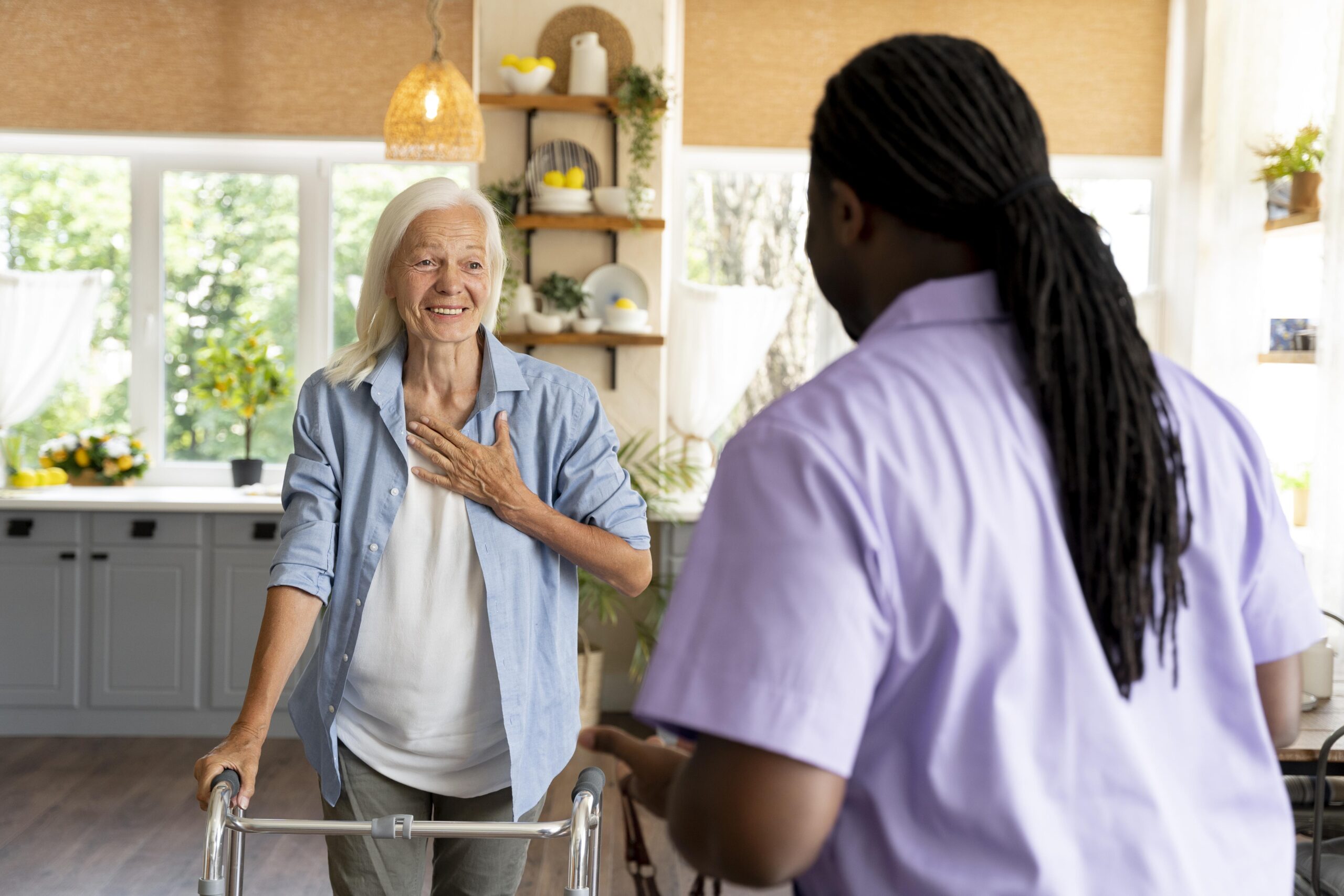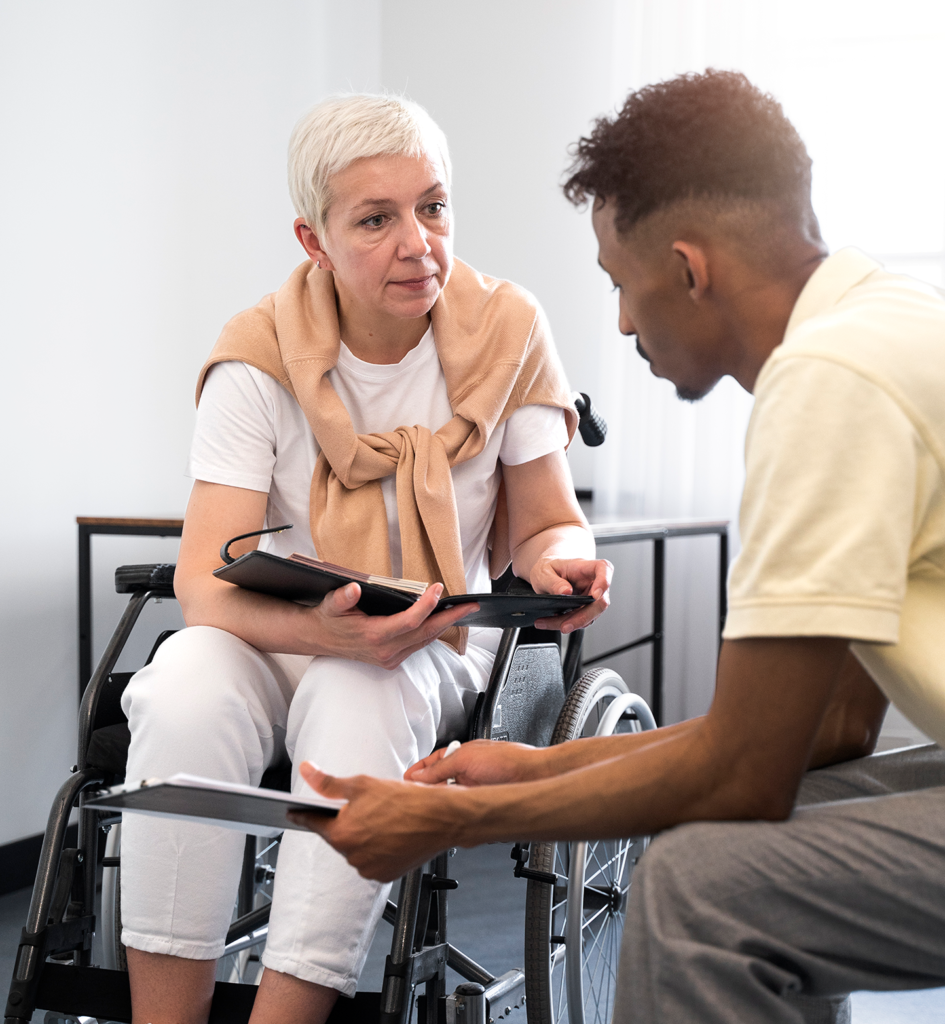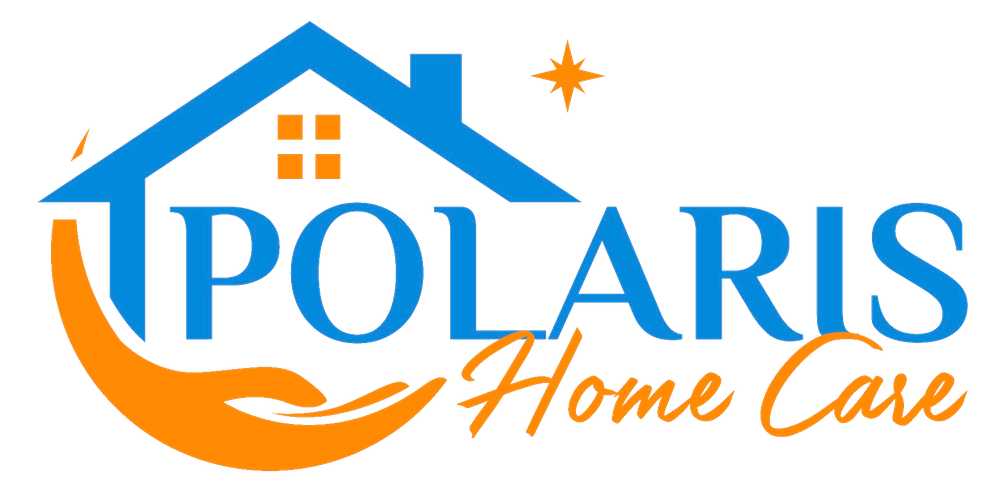Stroke
An advanced condition that often occurs within our senior population is stroke. Approximately 795,000 people suffer a stroke every year, nearly three-quarters of whom are senior citizens. A stroke occurs when there is a sudden interruption of the blood supply in the brain. Strokes are commonly caused by blockages in the arteries of the brain or by a burst blood vessel in the brain. Strokes occur suddenly and require immediate medical attention to avoid further brain damage or possible death.

Rehabilitation Process
About our stroke care
At Polaris Home Care, our caregivers complete extensive training on stroke recognition and stroke management care. Our caregivers are trained to recognize the warning signs of a stroke so they can act swiftly should a stroke occur while working with a client. The most common indicator that a stroke has occurred is weakness in the face and extremities, most often on one side of the body; additional warning signs can include sudden numbness in the extremities and face, sudden confusion or trouble speaking, sudden trouble seeing, walking, or balance.
We at Polaris Home Care provide our clients with the highest level of in-home care. In addition to the stroke recognition training our caregivers also complete additional stroke training on how to best provide in-home care for you or your loved one who has suffered from a stroke. Our employees assist our clients with their daily activities and help them to maintain the highest level of independence possible. Assisting our clients through all of their rehabilitation while recovering from their stroke.

Comprehensive Home Care Solutions
Polaris Home Care's Services
Polaris Home Care offers personalized in-home care services, ensuring comfort, safety, and independence for seniors and individuals in need.
Personal Care
Bathing, toileting, therapy exercises, dressing, transfers, and all other personal hygiene related tasks.
Companionship
Your caregiver will become your
friend and natural extension of your
family
Care Management
Facilitate communication between all care providers and coordinate appointments / visits.
Household Tasks
Meal planning, cooking, medication reminders, laundry, light cleaning, and other necessary chores.
Transportation
Driving to appointments, errands, activities, and to see friends or family.
Memory Care
All staff are trained in caring for people experiencing memory loss and the best activities and exercises for them.
